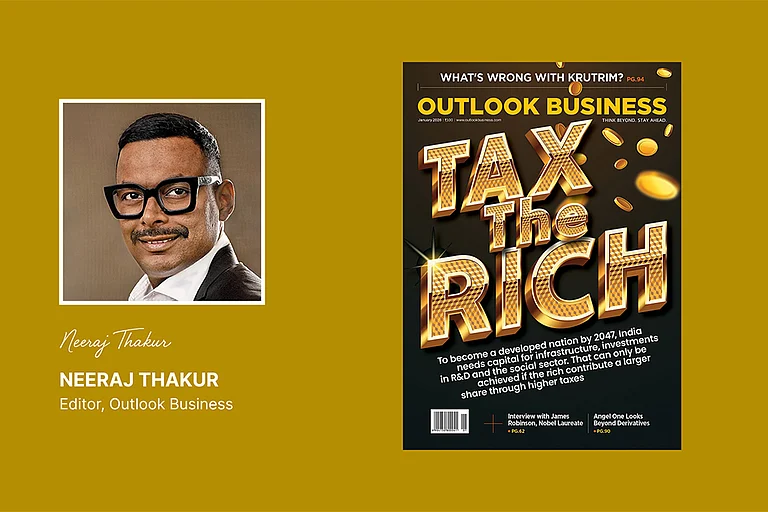For years, Rahul Gandhi was not seen as a viable leader by the media commentariat or the citizenry. His public persona was that of a semi-serious, part-time politician who was often described as an arrogant, fidgety man who had the top-post in the Congress party only because he inherited it. His blind supporters hoped Gandhi would grow into a leader because of his lineage. His critics within Congress thought it was he who was ruining the party’s electoral chances. And many within the Bharatiya Janata Party (BJP) thought that as long as Gandhi was Congress’ leader, their party’s pole position in Indian politics would remain unquestioned.
In 2024, Rahul Gandhi changed all of that. While walking through eastern and northeastern India in the second edition of Bharat Jodo Yatra, called the Nyay Yatra, Gandhi transformed into a leader with an electorate of his own. The results accrued in the general elections that came after. The Congress, down in the dumps, emerged with 99 seats, almost double the number of seats it had won in the 2019 elections. The Indian National Developmental Inclusive Alliance (INDIA), led by Congress, won 234 seats. And a decade of single-party majority in Parliament ended.
Unlikely Hero of the Poor
Over a decade ago when the Congress-led United Progressive Alliance (UPA) was still in power, Rahul Gandhi had once been quoted saying, “Poverty is just a state of mind.” He had gone on to say, “It [poverty] does not mean the scarcity of food, money or material things. If one possesses self-confidence, then one can overcome poverty.”
The spectacles-clad, slightly geeky looking man, ill-adjusted to the white kurta-pyjama, has now emerged in a Burberry T-shirt and a salt-and-pepper beard
Roughly 11 years on, and a decade away from power, Gandhi seems aware of how systemic pressures disenfranchise people. And thus, ahead of the 2024 polls, he promised direct benefit transfer schemes, policies he thought would end poverty in one fell swoop. He would end poverty “Khatakhat khatakhat khatakhat”, he said, by providing Rs 1 lakh a year to every family below the poverty line.
The improbability of ending poverty at one go notwithstanding (his grandmother had once promised something of the sort), his broader perspective did manage to capture the imagination of a significant section of voters. He also tried to find his place within the caste-centred politics in India by promising a census of people belonging to separate caste groups. He claimed that a census would reveal how a few caste groups have usurped political and economic power in India.
“Economic issues are usually buried under the din of communalism and communal rhetoric. That is their [BJP’s] ploy all along. And that is what Rahul Gandhi is bringing out, in Parliament and at so many levels. He has been constantly connecting with people,” Anshul Avijit, national spokesperson of the Congress party, told Outlook Business.
A New Image
What has worked for Gandhi barring anti-incumbency in parts of the country is the redefining of his public image. The spectacles-clad, slightly geeky looking man, ill-adjusted to the white kurta-pyjama, a virtual uniform of Indian politicians, has now emerged in a Burberry T-shirt and a salt-and-pepper beard.
In this image, Gandhi seems more at ease with himself. He is often seen on videos in unlikely places—working alongside bike mechanics, chatting with students, cooking with senior politicians. His attempt, it seems, is to counter the larger-than-life image of Narendra Modi by casting himself as a boy next door, a tall order for a politician whose family has led the country for most of its independent history.
For his politics, Gandhi has chosen the social-justice paradigm. His speeches are full of attacks on the BJP for alleged economic failures—rising inflation, unemployment, cronyism. This pitch has helped him win over Dalits and other marginalised communities, political observers say.
While some of his solutions have been scoffed at, some have found bipartisan acknowledgement. For example, the internship scheme announced in the 2024 Union Budget is said to have been inspired by a policy proposal made in the Congress election manifesto. He has also tried to tag the BJP’s religious politicking singularly as a distraction. “If there is an unemployment problem, they [the BJP] will bring up communalism. They will bring up mandir-masjid to bury this issue,” adds Avijit, the Congress spokesman.
Not many of Gandhi’s ideas are original. Several are rehashes of old policy proposals that are popular with the broader Indian Left, that includes the communists and the social-justice parties. But Gandhi’s chief achievement has been to tap into the electorate that yearns for these policy proposals to turn into action. To make them believe that a man from one of the most powerful political families in India is a friend to the poor and disenfranchised. It is this ability to secure their trust that makes Rahul Gandhi a changemaker in 2024.












